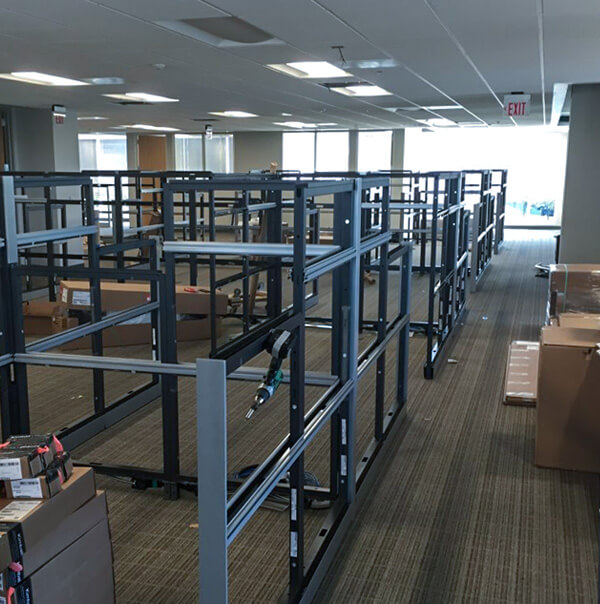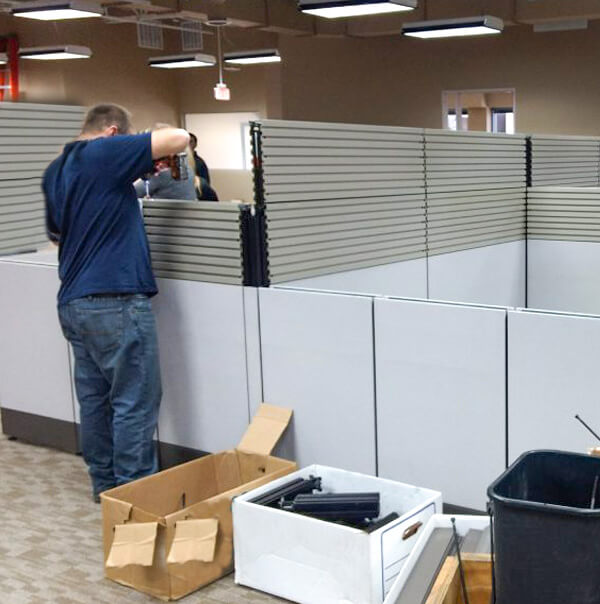In the dynamic world of business, the decision to relocate an office or corporate facility is both a significant opportunity and a formidable challenge. It’s a venture that demands more than just moving items from one place to another; it requires a strategic approach where every detail matters. This is where facility services come into play, acting as the cornerstone of a successful business relocation. Our blog is dedicated to unraveling the intricacies of facility services and showcasing how they can transform your business relocation journey.
At its core, facility services encompass a wide range of functions and supports essential to the maintenance and management of commercial or institutional buildings, such as offices, manufacturing plants, schools, and hospitals. These services are not just about ensuring operational efficiency; they extend to providing a safe, comfortable, and productive environment for employees and visitors. Facility services cover areas such as cleaning, security, building maintenance, HVAC (heating, ventilation, and air conditioning) management, and more. They are the invisible engines that keep the facility running smoothly.
When it comes to business relocation, the role of facility services expands exponentially. Relocating a business isn’t just a physical move—it’s a transformation process that affects every aspect of the organization. Facility services ensure that this transition is as seamless as possible. They address the logistical challenges, minimize operational downtime, and help maintain employee morale and productivity during the move.
The purpose of this blog is to provide you with a comprehensive guide to enhancing your business relocation experience through efficient facility services. Whether you’re a small enterprise taking its first steps towards expansion or a large corporation shifting to a new headquarters, understanding the nuances of facility services is crucial.
Understanding Facility Services in the Context of Business Relocation
Overview of Facility Services in Business Relocation
Facility services play a pivotal role in the success of business relocation by providing a systematic and organized approach to the myriad challenges associated with moving a business. In the context of relocation, facility services extend beyond the day-to-day maintenance of a facility and encompass a strategic orchestration of logistics, infrastructure setup, technology integration, and compliance adherence. This section delves into the key components that constitute facility services during the intricate process of business relocation.
Key Components of Facility Services
Logistics and Planning
Efficient logistics and planning are the bedrock of successful business relocation. Facility services involve meticulous coordination of every aspect of the move, from packing and transporting equipment to managing timelines and minimizing downtime. A well-organized plan ensures that the relocation process is executed seamlessly, minimizing disruptions to business operations.
Infrastructure Setup
Setting up the new infrastructure is a critical aspect of facility services during relocation. This includes designing the layout of the new space, installing necessary equipment, and ensuring that all utilities are functional. Facility services providers work closely with architects, contractors, and other stakeholders to create a conducive environment that aligns with the business’s operational needs and future growth plans.
Technology and Communication Systems
In the modern business landscape, technology is integral to operations. Facility services encompass the seamless integration of technology and communication systems during relocation. This involves transferring IT infrastructure, ensuring connectivity, and addressing any technological challenges that may arise. A smooth transition of technology is essential to maintaining business continuity and productivity.
Compliance and Legal Considerations
Navigating the legal landscape and ensuring compliance with regulations is a complex but crucial aspect of business relocation. Facility services providers are well-versed in the legal considerations involved in relocating a business, from zoning and building codes to environmental regulations. Compliance ensures a smooth transition without any unforeseen legal complications.
The Role of Facility Management Teams
Facility management teams play a central role in business relocation, acting as the orchestrators of the entire process. These teams, often comprised of professionals with expertise in areas such as project management, logistics, and compliance, oversee the execution of the relocation plan. They act as a bridge between the business and the various service providers, ensuring that every facet of facility services is aligned with the organization’s goals and requirements. Their proactive approach and problem-solving skills are instrumental in overcoming challenges and guaranteeing a successful relocation.
Pre-Relocation Planning and Assessment
Importance of Thorough Pre-Relocation Planning
The success of any business relocation largely hinges on the thoroughness of pre-relocation planning. This initial phase sets the tone for the entire move, helping to identify potential challenges, streamline processes, and ensure that the relocation aligns with the business’s broader objectives. Effective planning minimizes disruptions, optimizes costs, and lays a foundation for a smooth transition, ultimately contributing to the continued success of the business in its new location.
Steps in Pre-Relocation Assessment
Identifying Business Needs and Goals
The first step in pre-relocation planning involves a comprehensive analysis of the business’s needs and goals. This encompasses understanding the reasons behind the move, such as expansion, cost reduction, or strategic positioning. It’s essential to define what success looks like post-relocation, whether it’s increased space, improved accessibility, or enhanced operational efficiency. This step should involve input from various stakeholders, including management, employees, and key departments.
Budgeting and Financial Planning
A critical aspect of pre-relocation planning is establishing a realistic budget. This should cover all potential costs associated with the move, including leasing or purchasing expenses, renovation and fit-out costs, technology upgrades, and potential downtime. Financial planning also involves forecasting future operational costs in the new location and assessing the financial health of the business to ensure that the move is financially viable.
Choosing the Right Location
Selecting an appropriate location is more than just finding a space that fits the budget. It requires considering factors such as proximity to clients and suppliers, accessibility for employees, local labor market conditions, and infrastructure suitability. The chosen location should align with the company’s strategic objectives and provide a conducive environment for growth and development.
Risk Assessment and Mitigation Strategies
Any relocation comes with inherent risks, including operational disruptions, cost overruns, and employee retention challenges. Conducting a thorough risk assessment helps in identifying potential issues and developing mitigation strategies. This might involve contingency planning, insurance considerations, and developing communication plans to keep employees informed and engaged throughout the relocation process.
Involvement of Facility Services in Pre-Relocation Planning
Facility services play a crucial role in the pre-relocation planning phase. Their involvement ensures that the relocation strategy is grounded in practicality and operational feasibility. Facility services professionals can provide valuable insights into space utilization, infrastructure requirements, and logistical considerations. They are instrumental in:
- Space Analysis and Design:Assessing the suitability of potential new locations in terms of size, layout, and functionality.
- Technical and Infrastructure Evaluation: Identifying the technical requirements for the new location, including IT infrastructure, power supply, and HVAC systems.
- Vendor and Contractor Coordination: Facilitating the selection and coordination of various vendors and contractors needed for the move.
- Compliance and Legal Checks: Ensuring that the new location complies with relevant legal and regulatory requirements.
- Sustainability Considerations: Advising on eco-friendly practices and sustainability in the new location.
Managing the Relocation Process
Coordination of Logistics
Efficiently managing the logistics of a business relocation is a complex task that requires meticulous planning and coordination. It’s about ensuring a smooth transition from one location to another while maintaining business continuity.
Transportation of Assets
The safe and secure transportation of business assets is paramount. This involves cataloging all items, from office furniture and equipment to important documents and IT hardware. A detailed inventory should be created, with items categorized based on their fragility, value, and size. Partnering with professional movers who have experience in corporate relocations can be invaluable. They can provide specialized packing, handling, and transportation services to ensure that all assets arrive at the new location in the same condition they left the old one.
Ensuring Minimal Operational Disruption
A phased moving approach can be effective in minimizing disruption to operations. This involves moving non-essential items and departments that can afford downtime first, followed by critical operations. If possible, scheduling the move during off-peak hours or weekends can further reduce the impact on business activities. Additionally, having a temporary operational setup can help maintain critical functions during the transition phase.
Setting Up Infrastructure
Creating a functional and efficient work environment in the new location is a critical component of the relocation process.
Design and Space Planning
The new workspace should be designed to meet the specific needs of the business while promoting efficiency and employee well-being. This involves thoughtful space planning, considering factors like workflow, departmental proximity, and common areas. Engaging with interior designers or space planning experts can help in creating an environment that maximizes productivity and aligns with the company’s culture.
Installation of Equipment and Technology
The installation of equipment and technology is crucial for operational functionality. This includes setting up IT infrastructure, machinery, and other technical systems. It’s essential to work closely with IT teams and technicians to ensure that the setup is aligned with the business’s technological needs and that there is a stable and secure network connection. Testing systems before the official move date is crucial to address any issues beforehand.
Post-Relocation Strategies
Evaluating the Relocation Success
The culmination of a business relocation doesn’t mark the end of the journey but rather a transition into a new phase of operation. Evaluating the success of the relocation is crucial to understanding its impact and identifying areas for improvement.
Feedback Collection and Analysis
Gathering feedback from key stakeholders, including employees, clients, and management, is essential for a comprehensive assessment. Anonymous surveys, focus group discussions, and one-on-one interviews can provide valuable insights into the relocation experience. Analyzing this feedback can highlight both successful aspects and potential areas that may need attention or refinement in future relocation endeavors.
Performance Metrics and KPIs
Establishing key performance indicators (KPIs) specific to the relocation process allows for quantifiable measurement of success. Metrics such as downtime percentage, cost adherence, and employee satisfaction scores provide tangible data to assess the efficiency and effectiveness of the relocation. Regularly reviewing these metrics helps in identifying trends, making data-driven decisions, and continuously improving the relocation process.
Ongoing Facility Management
Post-relocation, the focus shifts to maintaining the new facility and ensuring its sustained functionality.
Maintenance and Upkeep
Regular maintenance is crucial for preserving the integrity of the new facility. Facility services extend beyond the relocation phase to encompass ongoing maintenance and upkeep. This includes routine inspections, cleaning schedules, and proactive repairs to address any wear and tear. A well-maintained facility not only enhances the working environment but also extends the longevity of assets and reduces long-term operational costs.
Continuous Improvement and Adaptation
The business landscape is ever-evolving, and so should be the approach to facility management. Continuous improvement involves staying attuned to emerging trends, technological advancements, and changes in operational needs. Periodic reviews and assessments of facility services allow for adjustments to be made, ensuring that the facility remains aligned with the organization’s goals and adapts to the dynamic nature of the business environment.
Long-Term Benefits of Effective Facility Services
Investing in effective facility services yields a myriad of long-term benefits for businesses.
- Operational Efficiency: Well-managed facilities contribute to streamlined operations, reducing downtime and enhancing overall efficiency.
- Employee Productivity and Satisfaction: A comfortable and well-maintained work environment positively impacts employee morale, leading to increased productivity and job satisfaction.
- Cost Savings:Proactive maintenance and strategic facility management contribute to cost savings in the long run by preventing major repairs and optimizing resource utilization.
- Business Agility:A facility that can adapt to changing needs and technologies positions the business for greater agility, enabling it to respond effectively to market shifts and opportunities.
Hire Valley Relocation’s Facility Services!
Are you looking for high-quality facility services to reduce the stress of your commercial relocation? Make sure you get in touch with Valley Relocation today! We offer a range of different kinds of services to help you maintain integrity and more in an office space.
Other than facility services, we offer warehouse and storage services, specialized transportation, and a lot more to help you out. Make sure to give us a call today and experience a seamless and worry-free move!





